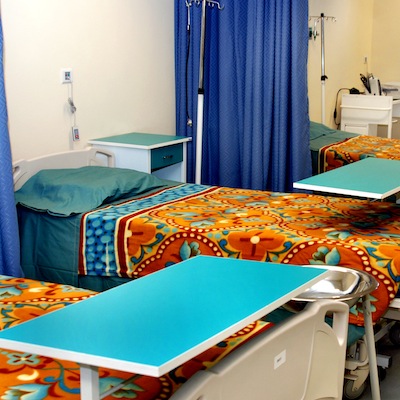Is Raimondo’s College Plan Dead? Paiva Weed’s Departure, Trump and CPAs’ Opposition
Friday, March 24, 2017
Governor Gina Raimondo’s biggest initiative legislative is on the ropes.
On Tuesday, Governor Gina Raimondo was scrambling to delay Senator Teresa Paiva Weed’s departure as Senate President until the end of the budget process.
According to State House sources, former State Senator and now senior advisor to Raimondo David Cruise was dispatched to plead with Paiva Weed to stay until the end of the budget process.
GET THE LATEST BREAKING NEWS HERE -- SIGN UP FOR GOLOCAL FREE DAILY EBLASTPaiva Weed declined.
And, the loss of Paiva Weed, who is arguably Raimondo’s strongest ally in the legislature, was just one of the recent hits to her top priority — the $30 million college funding program.
The bold proposal -- the RI Promise Scholarship Plan -- is designed to help Rhode Island students minimize their college debt. Some cynics said it was to soften the perception that Raimondo only supports corporate subsidies for major corporation, and that it was a plan to appeal to the more progressive side of the party with 2018 elections looming.
CPAs Express Opposition
On Thursday, the RI Society of Certified Public Accountants issued a damning report. In a survey conducted this week, approximately 78% of their membership respondents expressed their opposition to the plan. The Society is made up of professionals from Rhode Island and southeastern New England, representing the fields of accounting, finance, insurance, academia and law.
Others are joining in the criticism due to the lack of means testing for Raimondo's program.
“Poorer students are not helped: The governor’s plan has no financial cap for eligibility. It is unseemly that middle class folks who paid for and who have loans for their children’s education as well as granny and grandpa who sacrificed for their grandchild to attend an institution of higher learning would now be asked to have their tax dollars used to benefit other high income people,” write Arlene Violet in her column in the Valley Breeze. “This isn’t about class warfare: it’s about equity. Presidential candidate Hillary Clinton at least had an income cap on her proposal.”
The CPAs' statement was similar in critique. “A central concern expressed by RISCPA respondents was that the plan seems out of step with what RI can presently afford, as it would create one of the most ambitious college tuition subsidy programs in the country. Other concerns included the lack of research being provided to show future year costs associated with program growth, as well as the plan's minimal expectation of academic requirements or financial need eligibility restrictions placed on students.”
Speaker of the House Nick Mattiello has voiced strong concerns to Raimondo's plan and without House leadership support it is nearly impossible to fund a $30 million new program.
“Speaker Mattiello is concerned that the Governor’s proposal would make Rhode Island the only state in the country to adopt an exclusively taxpayer-funded higher education system. Improving the quality, access and success of higher education in our state are issues that Speaker Mattiello believes we need to accomplish,” said Larry Berman, Communications Director for Mattiello. "He wants to look at the data and make a determination of the specific potential changes and the impact those would have on accomplishing these goals. He does not believe the argument has been successfully made at this point, but he will review the testimony on her proposal provided to the House Finance Committee last week.”
Trump Factor
Due to the combination of the recently released federal budget proposed by the administration of President Donald Trump coupled with an expectation of a massive change to Obamacare, Rhode Island could be faced with a significant loss in federal funding.
On Thursday, Raimondo said the replacement of Obamacare would cripple Rhode Island's economy. At time of publication, the House vote on Obamacare was put on hold.
“Under TrumpCare, at least 70,000 Rhode Islanders will lose health coverage and it will cost taxpayers at least $200 million each year. As many as 8,000 Rhode Islanders will lose their jobs under TrumpCare, undoing nearly all the job growth we’ve fought so hard for," said Raimondo in a fundraising letter issued on Thursday to supporters.
"The Governor has proposed an affordable plan that ensures Rhode Islanders have the training and education they need to get the jobs we are creating, which is why business leaders across the state support the Rhode Island Promise Scholarship. TrumpCare and other aspects of the President’s budget would be a disaster for Rhode Island that puts everything at risk," said David Ortiz, Press Secretary to Raimondo is a statement to GoLocal.
Related Slideshow: Winners and Losers in Raimondo’s FY18 Budget Proposal
Related Articles
- Is Raimondo’s College Plan Dead? Paiva Weed’s Departure, Trump and CPAs’ Opposition
- NEW: Raimondo’s Ties to No-Bid RI State Police Contract
- RIC’s Endress Talks Trump’s Tweets, Raimondo’s National Press Disconnect with RI, and More
- Robert Whitcomb: Raimondo Status, Medical Cost-Shifting to the States; & Saving the Citgo Sign
- Igliozzi Makes Appeal to Raimondo to Keep Plainfield Street 6/10 On-Ramp
- Raimondo Announces Investments in 10 New Bikeway Projects
- NEW: Raimondo Announces State Offices Closed on Tuesday Due to Storm
- Does a Republican Candidate Have the Edge Over Raimondo?
- Rep. Nardolillo Blasts Raimondo Over New Tourism Campaign
- Raimondo Headlining Deloitte-Sponsored Event in California
- Chafee Calls Out Raimondo Administration for “Candy Store” Economic Development Strategy
- Moore: Raimondo Badmouths Deloitte, Then Breaks Bread With Them
- Raimondo Administration Starts Process for Locating New Innovation Campus
- Mattiello Calls Raimondo “Tone Deaf” on Public’s Support for Elimination the Car Tax
- Legislative Leaders Fire Back at Raimondo’s Claim They Pressured Her on UHIP Launch
- Two Top RI GOP Women Leaders Discuss Trump’s Address, Raimondo & More on GoLocal LIVE
- Raimondo’s Interim HHS Boss to Resurrect UHIP Oversaw Failed VT Healthcare System
- Moore: Feroce Destroys Raimondo’s Economic Strategy
- “I am Sorry” Says Raimondo About Failed UHIP Rollout
- Raimondo, Chafee and Mattiello All on GoLocal LIVE - See the Schedule
- Governor Raimondo On GoLocal LIVE and Talks UHIP, 38 Studios, and Free College Tuition
- War of the Roses Breaks Out Between Mattiello and Raimondo
- Moore: Raimondo, Mattiello Squabble Over Budget Giveaways
- Guest MINDSETTER™ Stewart: Why I Oppose Raimondo’s Free College Scheme



2013_Flickr_180_180_90.jpg)











